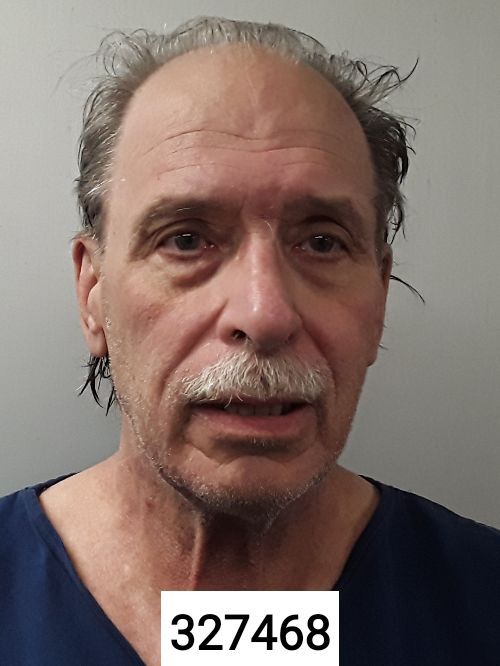Kentucky Supreme Court overturns man’s rape conviction, 50-year sentence
Published 3:22 pm Thursday, June 20, 2024

- John Ellis
By Justin Story, Bowling Green Daily News
A Franklin man’s conviction in a sexual assault and home invasion has been reversed by the Kentucky Supreme Court.
A split 4-2 majority ruling by the state’s high court on June 13 found that statements that John Ellis made to his longtime girlfriend while in police custody that incriminated himself were part of a police interrogation tactic made after Ellis asserted his right to a lawyer and thus should not have been admitted at his criminal trial.
Ellis, 68, was found guilty by a jury in Simpson Circuit Court last year on charges of first-degree rape, kidnapping and second-degree burglary and sentenced to 50 years in prison.
The supreme court’s ruling sends the case back to the circuit court for further review.
Simpson County Commonwealth’s Attorney Corey Morgan said that no date has been set in the circuit court to discuss the next steps in the case.
“There’s a possibility it could be mediated, but at the very least it will be retried,” Morgan said.
The charges brought against Ellis resulted from an investigation into a 2021 incident in which an 80-year-old woman reported that an intruder entered her home, attempted to place her in handcuffs and sexually assaulted her.
Ellis was reported missing two days after the incident, but he returned home shortly after the report was made.
He was then evaluated at an area hospital and released, and went with his girlfriend the next day to Kentucky State Police headquarters in Bowling Green to be interviewed.
The alleged victim in the case is the sister of Ellis’ girlfriend, according to court records.
At the police interview, late KSP Detective Jonathan Johnson’s questioning of Ellis focused initially on the missing persons case before shifting over to the sexual assault investigation, during which Johnson and KSP Detective Jonathan Carlock claimed to have physical evidence tying Ellis to the rape and Johnson said “mounds of evidence” existed against Ellis, records show.
Ellis then asked whether he needed to get a lawyer, and Johnson ended the interview, leaving and then returning to the interview room with Ellis’ girlfriend.
With Ellis’ girlfriend in the room, Johnson mentioned that police found Ellis’ DNA at the crime scene, which was not true, and suggested that Ellis had committed other assaults.
While the case was pending, Johnson testified that he mentioned those things in an effort to elicit a response from Ellis’ girlfriend and persuade her to question Ellis herself, according to records.
Johnson died in a motorcycle crash in Bowling Green in April, but Morgan said it is possible that video of his original trial testimony could be played at a second jury trial.
Ellis’ girlfriend asked him “John, surely you didn’t?”, to which Ellis replied with a denial of remembering a sexual assault or even going to the woman’s home.
The conversation between Ellis and his girlfriend continued, with Ellis saying he remembered drinking and “maybe (he) had too much.”
Johnson eventually left the interview room and the conversation continued between Ellis and his girlfriend, during which Ellis maintained that he didn’t remember committing any sexual assault but later said he left the area because he was scared.
Ellis’ girlfriend asked him whether he “just got drunk, that you just went crazy and did this” and Ellis said he thinks he did, and later said he got drunk in response to a question from his girlfriend asking him why he broke into the house, records show.
Johnson then came back into the interview room, advised Ellis of his rights and arrested him.
Before his trial, Ellis’ defense team sought to have the police interview suppressed, but the Simpson Circuit Court allowed the jury to hear statements Ellis made to his girlfriend when the two were alone, while suppressing the statements he made to her when Johnson was in the room with the couple.
The state supreme court’s analysis posited the act of Johnson bringing Ellis’ girlfriend into the interview room and their subsequent three-way conversation among as a strategy meant to elicit admissions of guilt from Ellis, but the court ultimately found that Ellis did not reinitiate this contact with police after invoking his right to an attorney, meaning that the police violated his rights.
“There is no reasonable construction of events that could lead to a conclusion other than Ellis’ statements were the product of Johnson bringing (Ellis’ girlfriend) into the interview room and subjecting her and Ellis to a three-way colloquy specifically meant to elicit an incriminating response, by positing Ellis’ guilt through the presentation of false evidence and the suggestion that Ellis was a serial rapist,” Kentucky Supreme Court Justice Robert Conley wrote on behalf of the majority in the ruling.
The court’s majority ruling also found that Ellis’ statements to his girlfriend “were highly incriminating admissions that were as close to a confession as one could come without confessing” and that, given the circumstantial evidence against him at trial, they substantially contributed to the jury’s decision to convict him.
Supreme Court Justice Michelle Keller wrote a partial dissent in which she agreed that Ellis’ statements should not have been admitted at trial, but argued that there was enough circumstantial evidence otherwise presented to prove his guilt that the improperly admitted statements themselves did not play a large enough role to merit a reversal of Ellis’ conviction.

